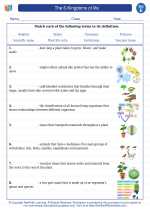Insects
Insects are a class of invertebrates within the arthropod phylum. They are the most diverse group of animals on Earth, with over a million described species. Insects can be found in almost every environment on the planet, and they play a crucial role in ecosystems as pollinators, decomposers, and as a food source for other animals.
Anatomy of Insects
Most insects have a three-part body consisting of a head, thorax, and abdomen. They have six legs, typically two pairs of wings, and antennae. The exoskeleton of insects provides support and protection for their bodies.
Life Cycle of Insects
Insects undergo metamorphosis, which is a process of transformation from egg to adult. There are two main types of metamorphosis: incomplete and complete. In incomplete metamorphosis, the insect goes through three stages: egg, nymph, and adult. In complete metamorphosis, the insect goes through four stages: egg, larva, pupa, and adult.
Ecological Importance
Insects play a crucial role in ecosystems. They are important pollinators for many plants, including food crops. Insects also contribute to the decomposition of organic matter, which helps to recycle nutrients in the environment. Additionally, insects are a vital food source for many animals, including birds, reptiles, and other insects.
Study Guide
- What are the three main body parts of an insect?
- How many legs do insects typically have?
- What is metamorphosis, and what are the two main types?
- Explain the ecological importance of insects.
- Give examples of how insects are beneficial to humans and the environment.
[Insects] Related Worksheets and Study Guides:
.◂Science Worksheets and Study Guides Fifth Grade. The 6-Kingdoms of life
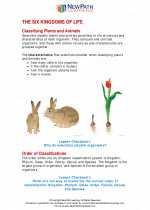
 Activity Lesson
Activity Lesson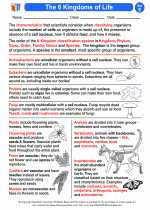
 Worksheet/Answer key
Worksheet/Answer key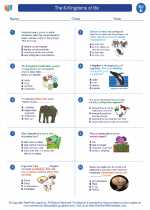
 Worksheet/Answer key
Worksheet/Answer key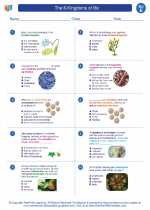
 Worksheet/Answer key
Worksheet/Answer key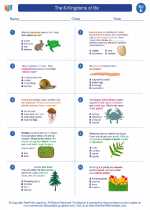
 Worksheet/Answer key
Worksheet/Answer key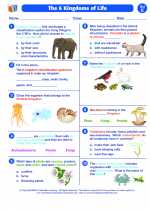
 Vocabulary/Answer key
Vocabulary/Answer key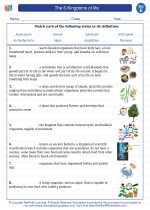
 Vocabulary/Answer key
Vocabulary/Answer key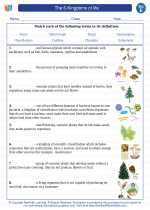
 Vocabulary/Answer key
Vocabulary/Answer key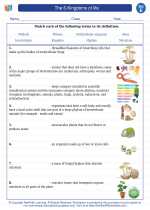
 Vocabulary/Answer key
Vocabulary/Answer key